RAIGAD
Markets
Last updated on 6 November 2025. Help us improve the information on this page by clicking on suggest edits or writing to us.
Athavdi Bazaars (Weekly Markets)
Raigad’s weekly markets, or athavdi bazaars, are vital to local trade and social life. The Panvel and Poynad bazaars are held every Friday, while Pen’s market takes place on Tuesdays. These bazaars offer a wide range of goods, including vegetables, fruits, flowers, children's toys, women’s accessories, and local handmade items like papads. The Poynad bazaar draws vendors not only from across Raigad but also from nearby Western Ghat villages, making it a vibrant point of exchange for both goods and cultures.
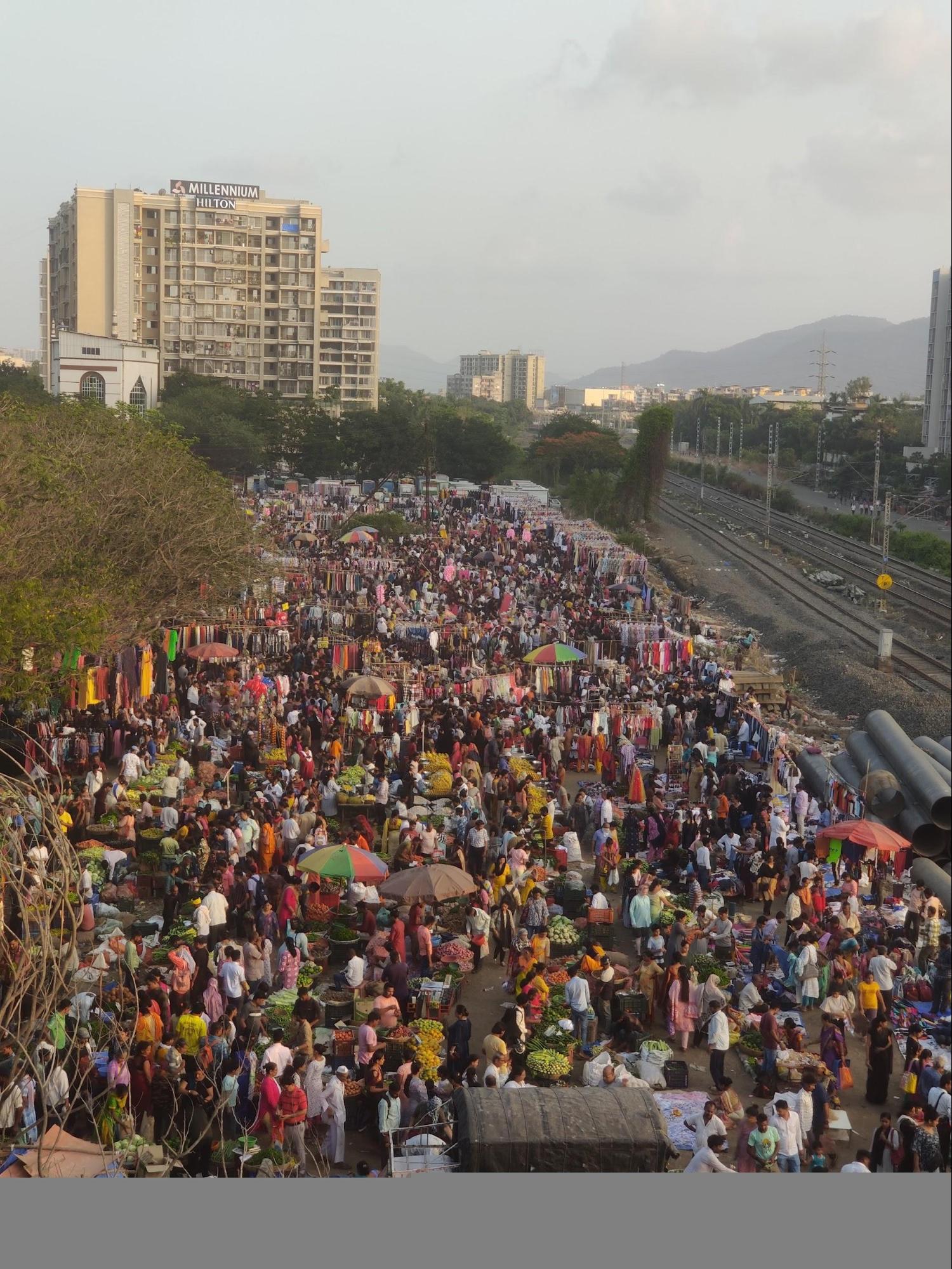
Bhingari Village Market
Bhingari village, located along the Panvel–Palaspe Phata route, hosts a vibrant roadside market featuring soft toys, swimming gear, and artificial flowers. Open daily from 8 am to 10 pm, the market sees high footfall during Ganeshotsava, when buyers flock to purchase decorative flowers. Toy prices range from ₹100 to ₹2,000, with ample room for bargaining.
Ganesh Murtis of Hamrapur
Hamrapur, Joha, and nearby villages in Pen taluka are renowned for their finely crafted Ganesh murtis. Historically known as Herembpur, or “the village of Bhagwaan Ganesh,” this region has received a Geographical Indication (GI) tag for its clay Ganesh murtis. While murti-making is a year-round activity, the months from June to September see increased activity leading up to Ganesh Chaturthi.
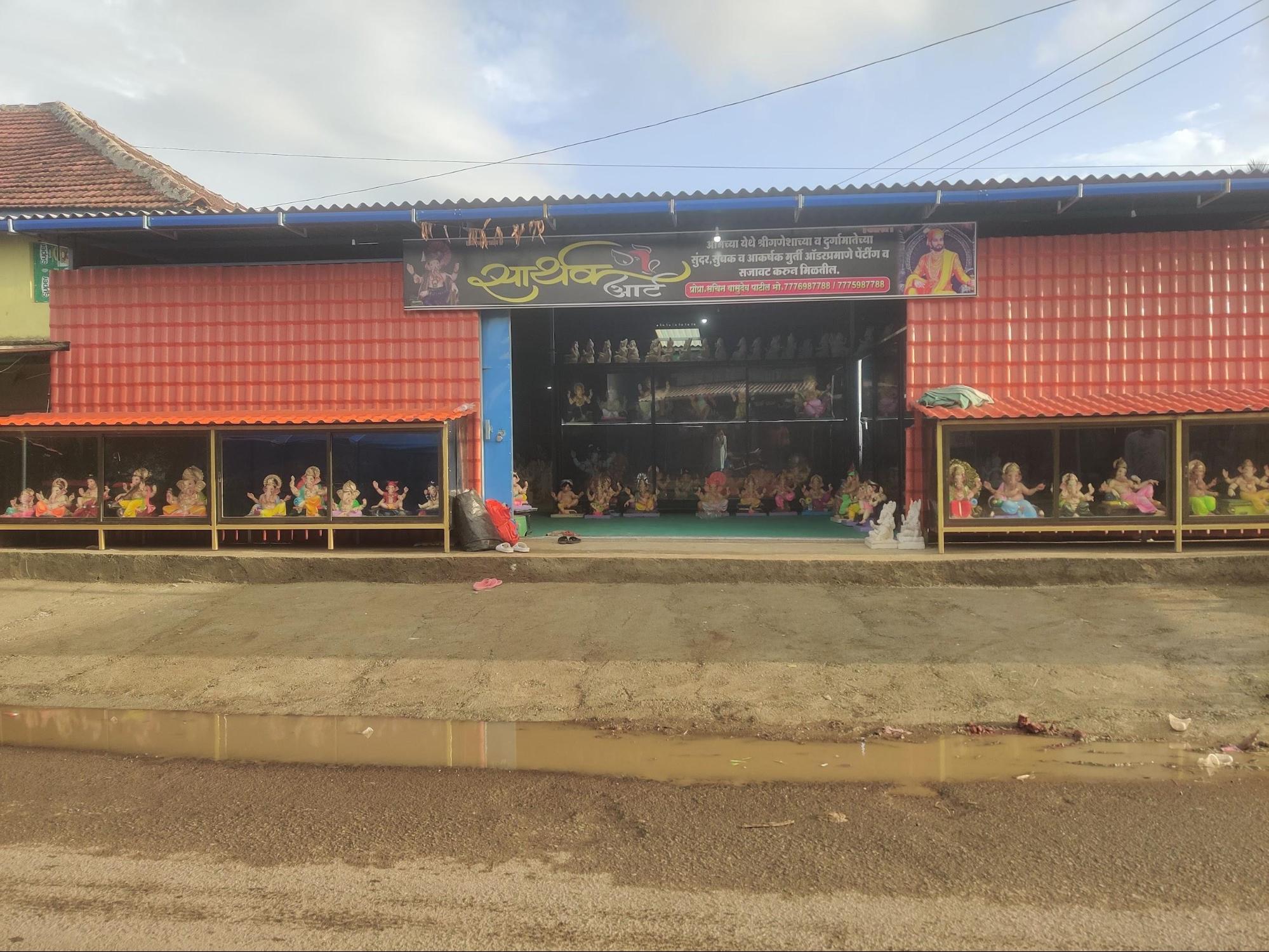
Harihareshwar Mandir Market and Elephanta Caves Market
Markets near the Harihareshwar Mandir and Elephanta Caves cater to pilgrims and tourists with stalls selling toys, accessories, framed photos, and religious items. Vendors also offer snacks like chikkis and pedhas. The Harihareshwar market stretches about one kilometer through the town, while the Elephanta market lines the stairway to the caves, offering refreshments and souvenirs during the 60–90 minute uphill walk.
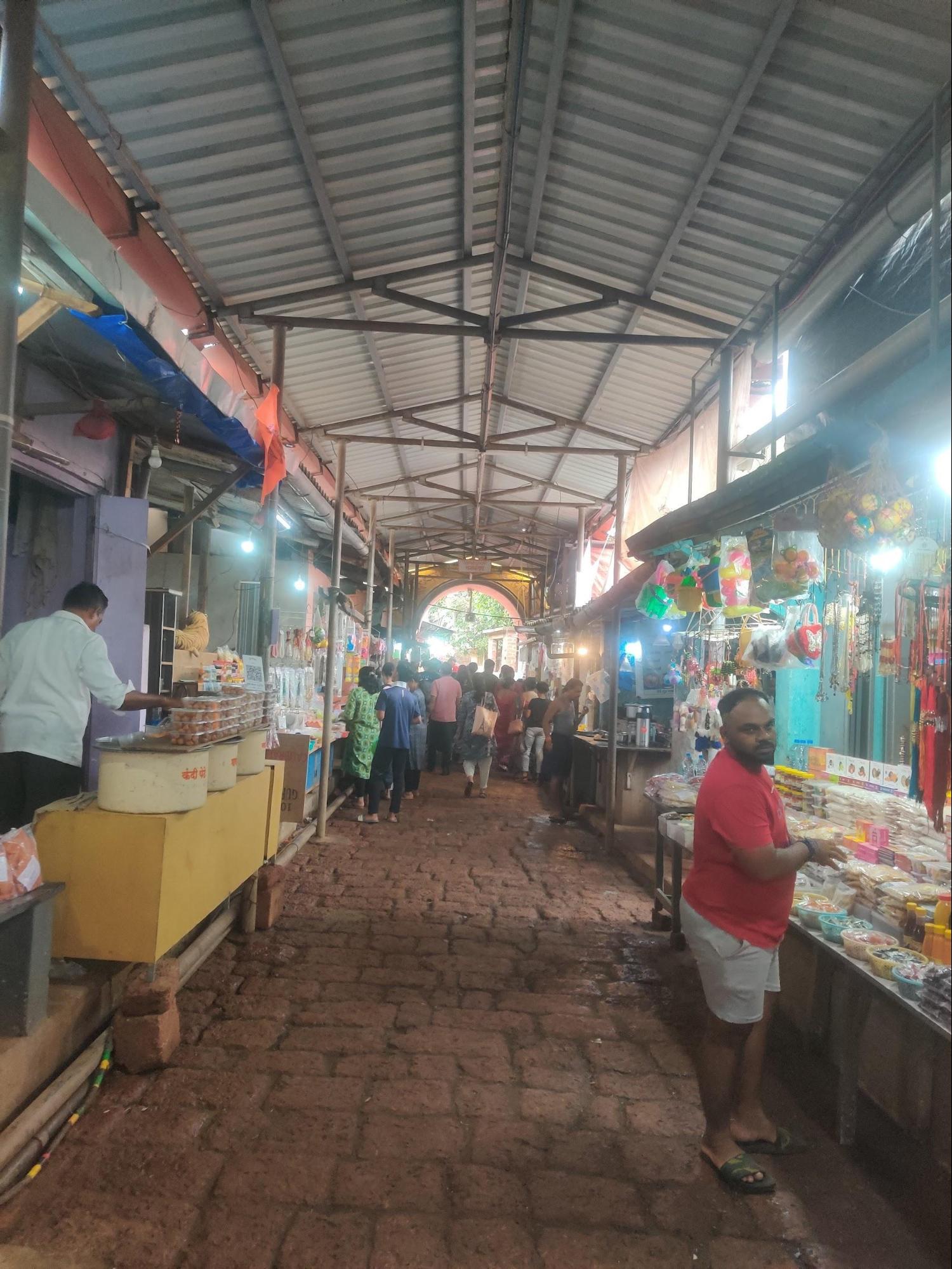
Kalamboli Iron and Steel Market
Kalamboli is home to one of Asia’s largest iron and steel markets, operating for nearly 35 years with a monthly turnover exceeding ₹1,000 crore. It supplies essential materials for construction, manufacturing, and engineering industries in Mumbai and the surrounding areas. A wholesale marble market also operates nearby. Ongoing infrastructure upgrades aim to improve road quality and vendor facilities.
Krushi Utpanna Bazar Samiti, Panvel
Established on 31 October 1967, Panvel’s Krushi Utpanna Bazar Samiti was created under a national act aimed at protecting farmers from exploitation and ensuring fair prices for their produce. The market plays a central role in the local supply chain, especially for small vendors who arrive early each morning to buy vegetables, fruits, onions, potatoes, and garlic at wholesale rates.
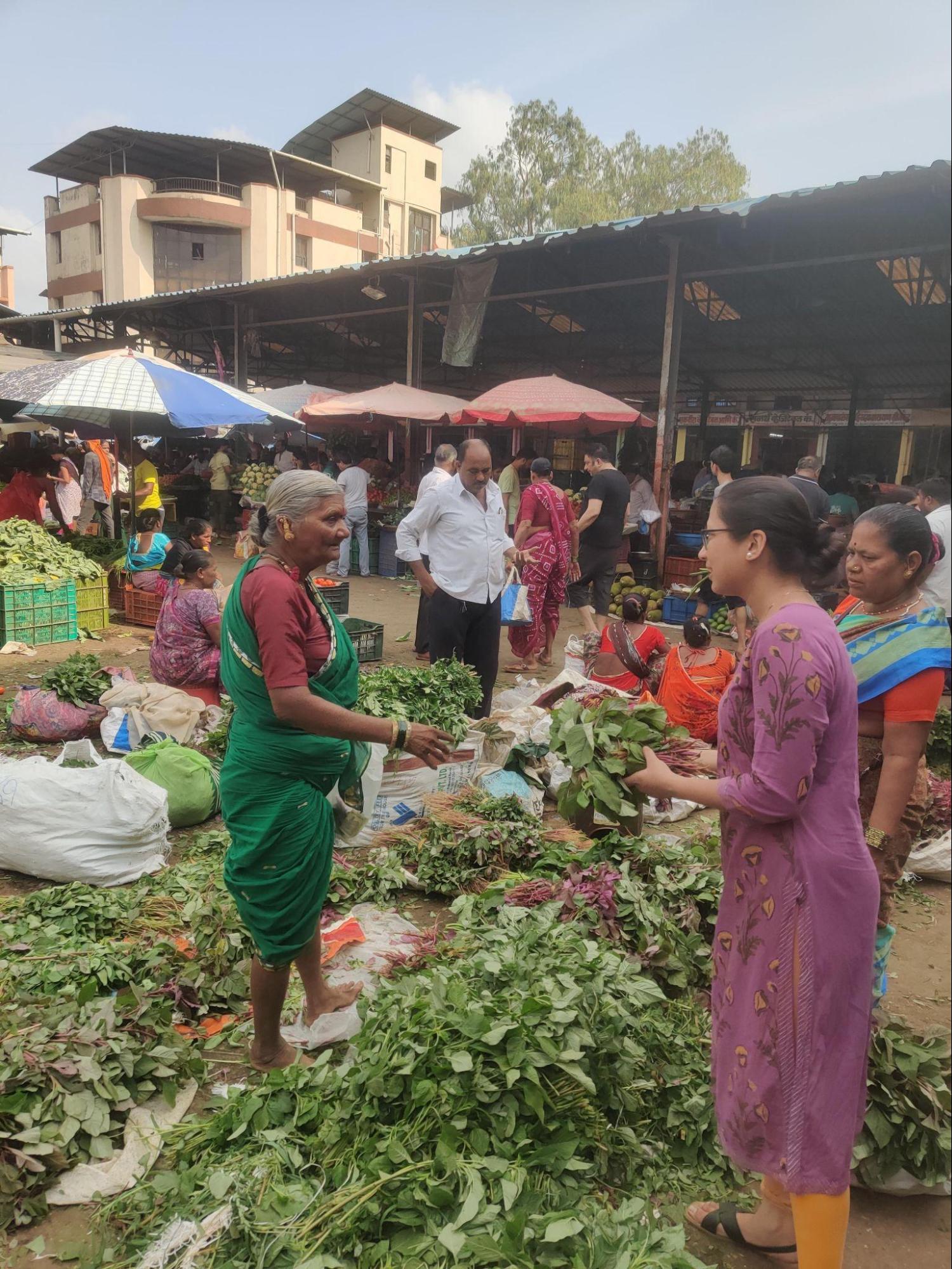
For everyday buyers, the market offers a wide range of produce, often at prices significantly lower than local retailers, sometimes up to 50% less. The best time to visit for individual shoppers is between 10:30 and 11:00 am, when the crowd thins out. Those purchasing in bulk typically arrive earlier.
According to local oral histories, Sant Tukaram Maharaj once sold chillies in this area. Today, that memory lives on in Mirchi Galli, where vendors specialize in dry red chillies used for making traditional masalas. Around Makar Sankranti, the market also hosts kite stalls, adding to its seasonal vibrancy.
Kumbhar Ali
Kumbhar Ali in Pen is home to the traditional potter community. Earthen pots and brightly painted vessels are displayed outside homes along the lane. These pots are used for storing water, while the decorative ones are especially popular during Dahi Handi celebrations.
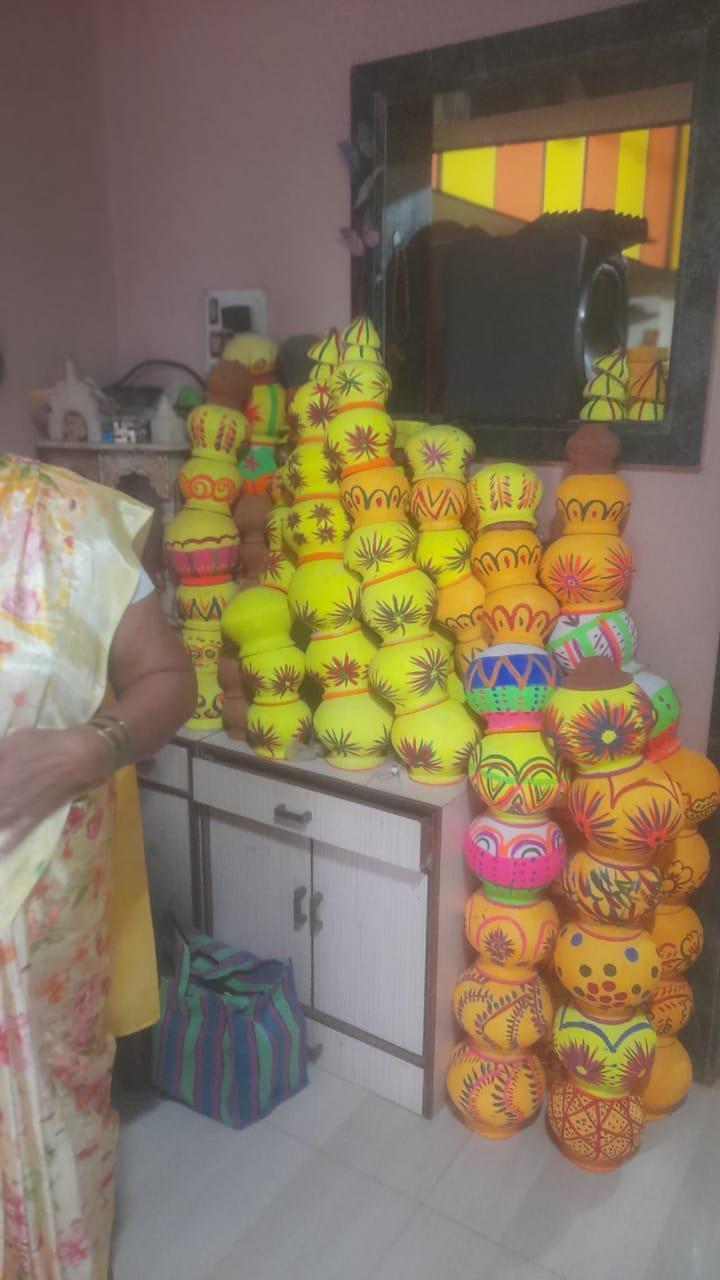
Raigad Bazaar
Raigad Bazar in Panvel was established in 2001 to offer essential goods at fair prices, with a focus on proper weight and prompt service. Spread across 21,000 sq. ft., it was the city’s first major retail hub (predating chains like D-Mart and JioMart). The initiative was led by local leaders, including Ramsheth Thakur, Vivek Patil, Jayant Patil, and Minakshi Patil, under the guidance of Dattusheth Patil, with support from Arun Bhagat and Balaramsheth Patil. It was inaugurated by then Chief Minister Vilasrao Deshmukh on 29 January 2001.
The market sources groceries, vegetables, and grains directly from local farmers. It also sells medicines at discounted, tax-free rates. Annual events like the Rice Festival and Masala Festival promote locally grown produce and draw visitors from across the district.
Roz Bazar
Raigad is known for its marine produce. Roz Bazar in Panvel opens early each day, offering fresh vegetables, fruits, sprouted pulses, and fish. One of its stalls features Chinese vegetables like zucchini, bell peppers, and lettuce, sourced from APMC Vashi and the Raigad Krushi Utpanna Samiti. Fish vendors arrive in the morning and continue selling sea fish, such as surmai, pomfret, and prawns, throughout the day.
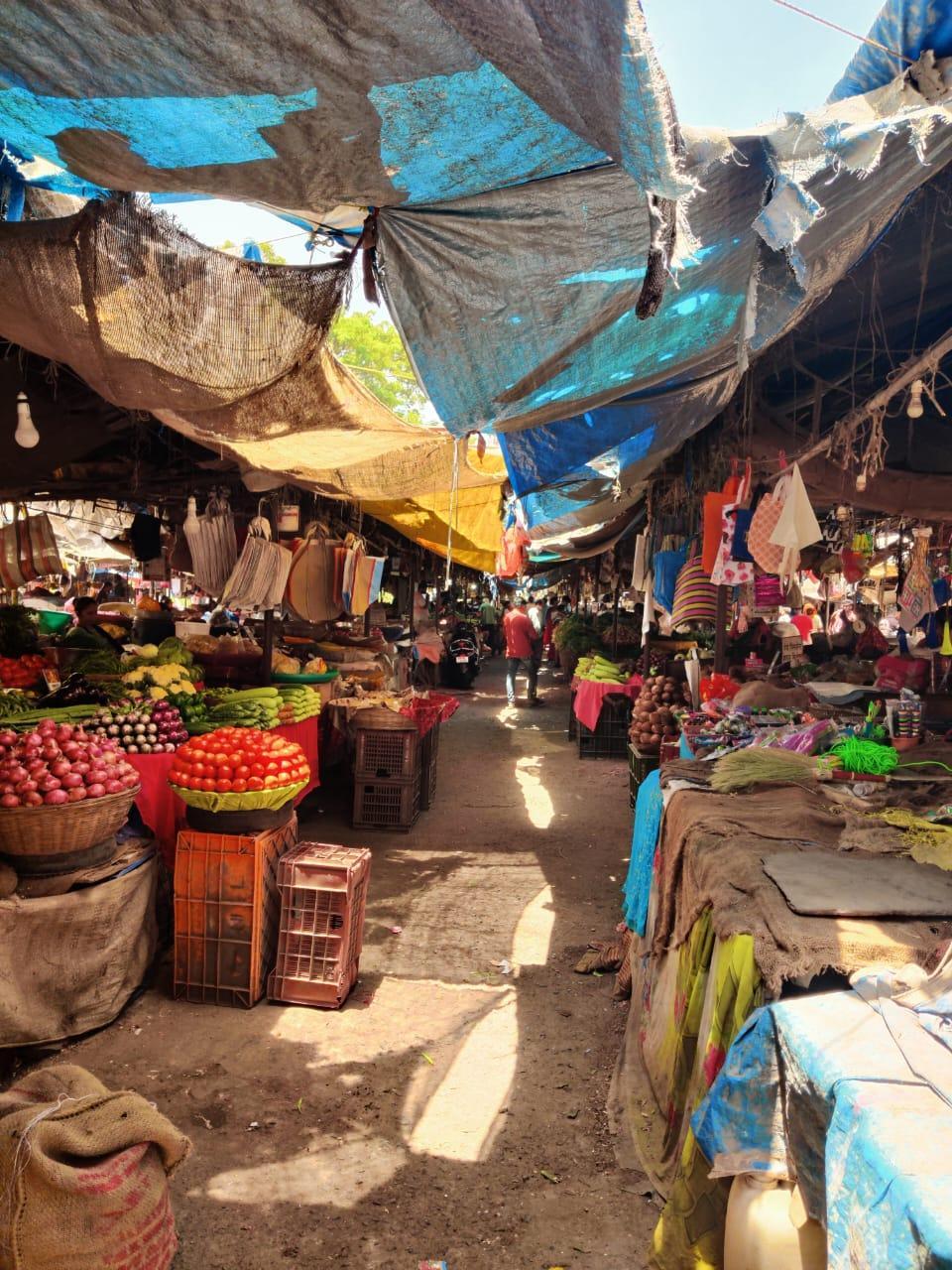
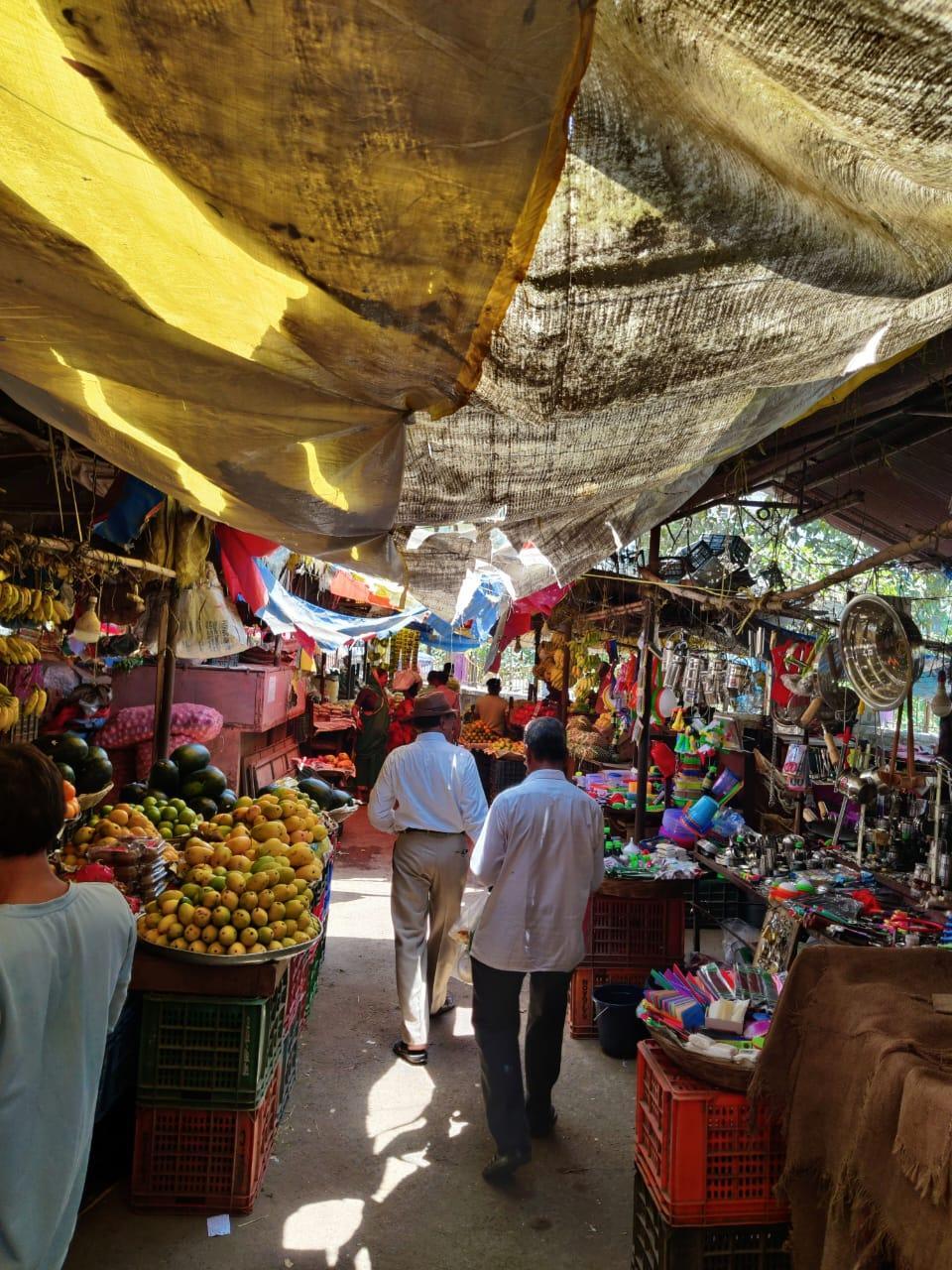
Vendors in Local Trains
Many residents of Raigad district travel daily to Mumbai for work, often taking early morning local trains from Panvel. The journey to stations like CSMT or Goregaon can take up to two hours one way, meaning commuters spend around 4 to 5 hours in transit each day. With little time left for shopping, vendors in local trains offer a convenient solution. They sell a wide range of items, including fresh fruits and vegetables, flowers, hair accessories, household tools, stationery, and small electronic goods. These mobile stalls not only meet everyday needs but also offer a brief diversion during the long commute, as passengers browse through the goods while traveling.
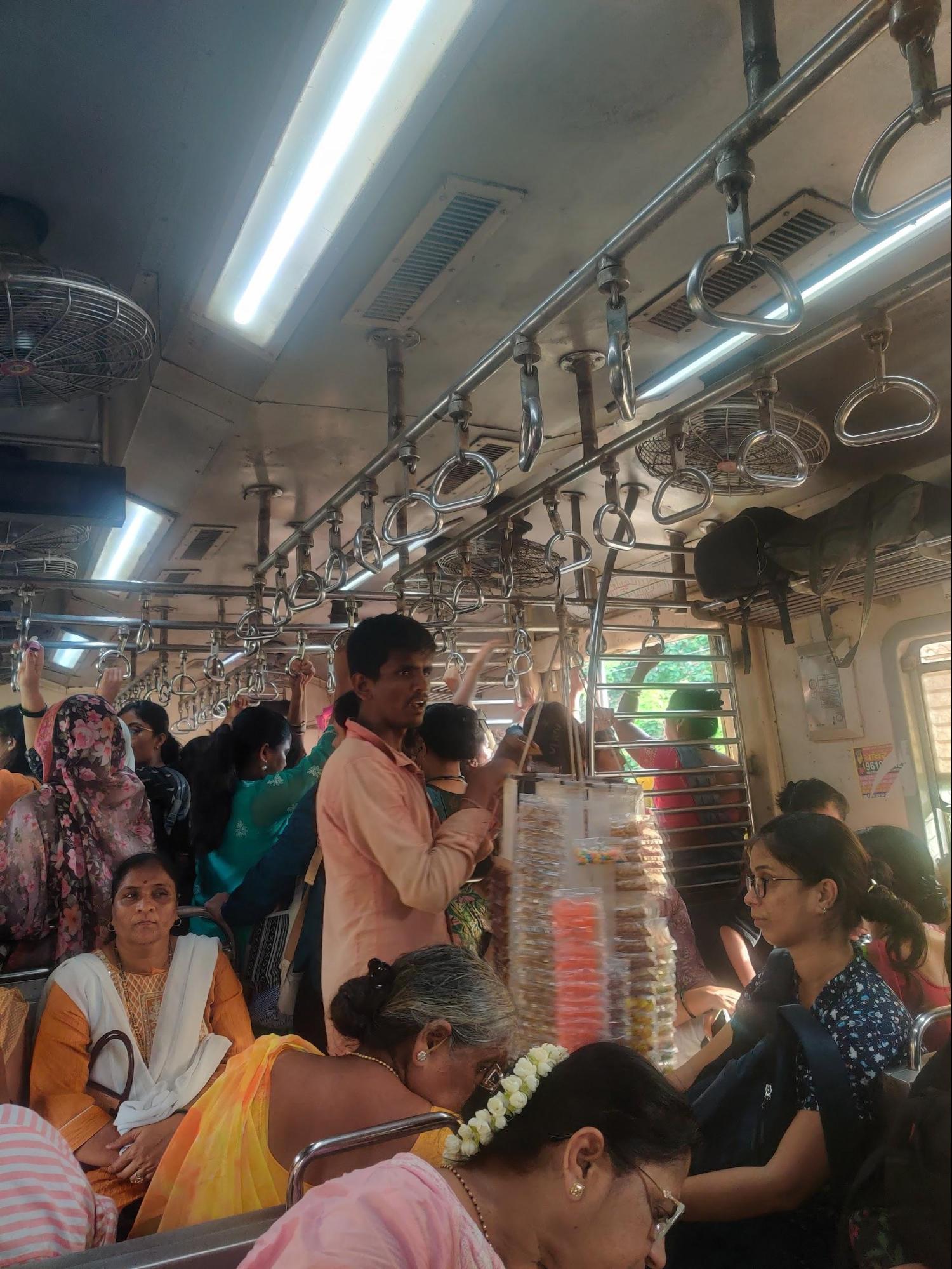
Last updated on 6 November 2025. Help us improve the information on this page by clicking on suggest edits or writing to us.